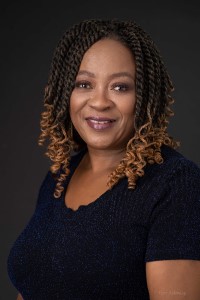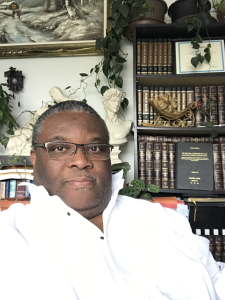
February is Black History Month. It is a time to celebrate and learn about Black history, culture, and the contributions and achievements of Black people. Members of the Kwantlen Polytechnic University (KPU) community share reflections on what Black History Month means to them.
Foluso Fagbamiye, Research Ethics Coordinator at KPU

The highlight for me is learning about the noble heroes and heroines who fought for social justice and equal rights that paved the paths to equality and fairness for all Blacks. As a society and at KPU, we must consider the effect of our actions or inactions on others, especially the visible minorities, because believe it or not, the Black person you see may only call Canada home. When we came back from a recent family trip to Africa, my daughter recounted how she felt homesick the first day we landed in Africa. This was her very first trip to the continent. I asked her, ‘I thought we were home, in Africa.’ She was quick to correct me that home was Canada. This challenged my thinking. To my daughter who was born and raised in Canada, this is home.
I hope for more acceptance of everyone in Canada irrespective of their roots. Like Chloe Cooley’s attempts to get free from her enslaver drew attention to witnesses whose testimonies led to the Act to Limit Slavery in Upper Canada of 1793, let’s not be silent. If you witness inequality, have the courage to speak up. That is the way society improves for the better.
Zahra Mohamud, Confidential Assistant, Office of Equity and Inclusive Communities at KPU

To me, Black History Month is about shedding light on the unseen. It's about providing exposure to those who often go unnoticed. Apart from the giants of history whom we know, love, and honour, this month is also about uncovering the stories and achievements of lesser-known figures who are destined to become household names in due time.
I find it fascinating how, every year, articles emerge spotlighting unsung heroes who are just now receiving their proper recognition. That should tell us there's always greatness to be discovered, which is why I urge you this month and beyond to examine your own life and think about the Black people you know who are doing amazing things. Recognize their efforts, uplift their voices and always give them credit where it's due.
Dr. Barnabe D. Assogba, Biology Instructor, Faculty of Science

Black History Month in Canada represents a crucial juncture, calling for collective reflection and concerted action towards fostering a more equitable society and an educational institution, exemplified by KPU, that authentically aligns with its intended purpose. Pursuing this alignment demands a nuanced strategy to navigate the complexities of promoting inclusivity and understanding within our community. Essential to this endeavour is the advocacy for a curriculum that seamlessly integrates Black history, transcending mere celebration to delve into intricate and diverse experiences. A curriculum of this nature empowers students and contributes to shaping a collective narrative that underscores our commitment to equity. Concurrently, cultivating a supportive environment at KPU necessitates actively promoting diversity and inclusion through mandatory annual workshops, cultural events, and open dialogues acknowledging and celebrating the Black experience.
A cornerstone of this commitment is the representation of diverse perspectives in faculty and leadership roles. Implementing diversity in hiring practices connects students with mentors from similar backgrounds and fosters a profound sense of belonging, signaling an unwavering commitment to dismantling systemic barriers. KPU, as an integral societal component, has the potential to lead the charge in championing education, inclusivity, and representation, serving as a catalyst for positive change that harmonizes with the core values of Black History Month.
Eliana McFarlane, KPU Sociology student in final year

First, I would like to articulate that Black history is the matter of utmost importance. It is celebrated in February because February is the month that Abraham Lincoln and Frederick Douglas were born. I highlight this point because while I recognize that many allies make the effort to educate themselves on matters of Black history in February, for members of the Black community (and its valued allies), Black History Month is every month.
It is important to learn about Black history because it does not begin with the transatlantic slave trade. There is so much richness and positive narratives that make up the contextual histories of the Black/African experience, that if we were to start halfway, we would rob ourselves of learning about entire empires and ways of life that resemble nothing to what we know and believe today.
Should you choose to continue to educate yourself on matters of Black history, I invite you to do so with an open mind, a discerning heart, and an appetite to prove your assumptions wrong. If you can do that, then you are well on your way to becoming better equipped for understanding Black historical affairs.